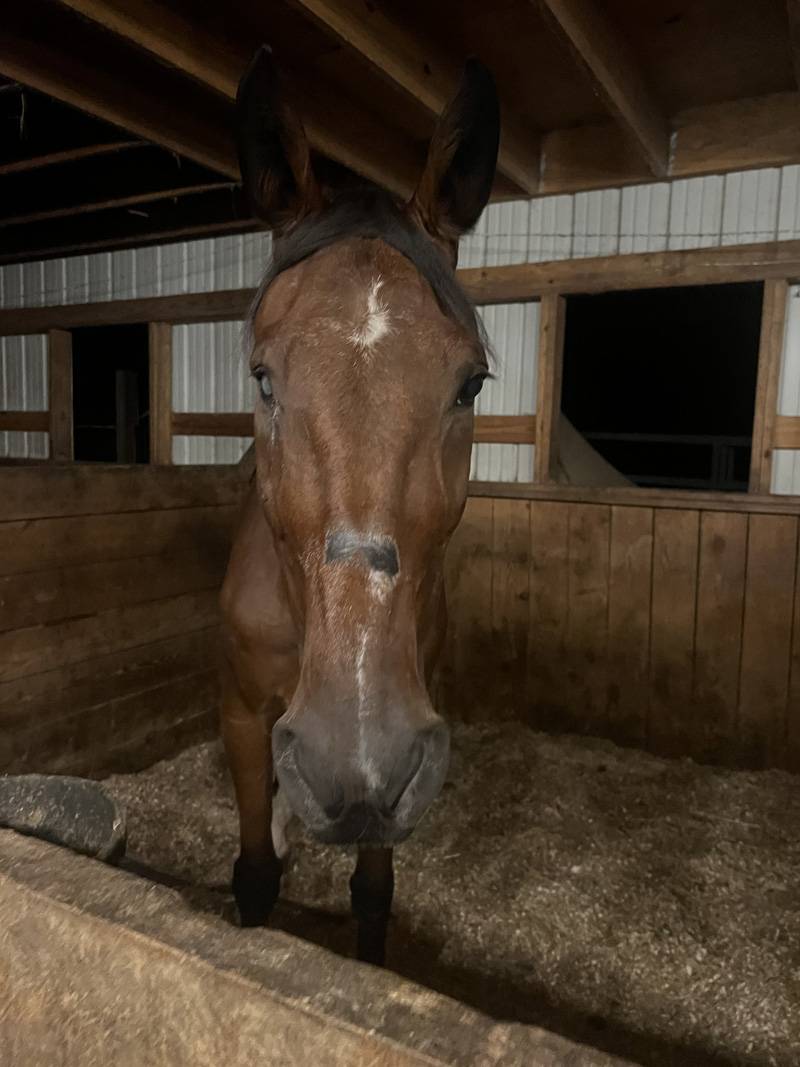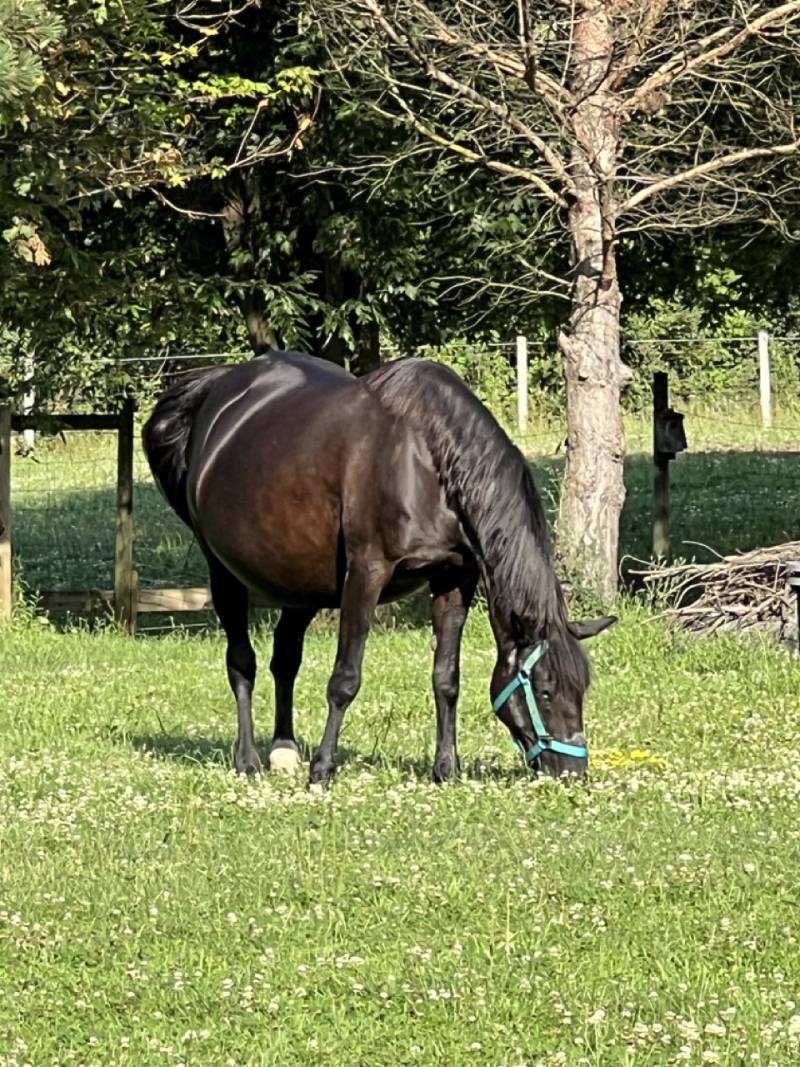Budd returns to his roots and to safe pasture at Cherry Hill, fundraiser August 11

Submitted Photo
Budd was a standardbred whose original destiny was to become a racehorse. At two years old, he didn’t make the required time and instead became a working horse. He ended up as a driver for an Amish family for the next 18 years.
He click-clacked his way for more than 100,000 miles over those years, and when it became evident that Budd could no longer perform his daily tasks due to old age, his family didn’t really want to send him to auction. Lucky for Budd, his family came across the Cherry Hill Farm Sanctuary business cards that President Pamela Harmon had scattered throughout nearby harness shops and community centers.
“We received a call this spring from a family looking to place a 21-year-old standardbred that had been their daily driver for 18 years. Budd was a part of their daily lives, and they wanted him to have a chance to retire in pasture," Harmon said to The Batavian. "As a tattooed standardbred, we were able to look up Budd’s history and found that he was born and trained here in Corfu, NY, before making his way to be a buggy horse. Budd, along with his original pasture mate at the Amish farm, is now retired at Cherry Hill Farm Sanctuary.”
Obviously, a much less traumatic and far more humane way to — quite literally — put Budd out to pasture to loll about and enjoy his remaining days as reward for many hard years of work, his new caretakers believe.
There are 60 acres for him to forage and practice “being a horse” with his fellow kind, go for walks with Cherry Hill volunteers, get bathed and groomed and receive the special treatment he deserves.
Cherry Hill officially became a nonprofit in 2022, with the primary purpose of helping senior equines live out their lives in peaceful and healthy comfort after serving their work lives and having no other place to go except to auction, where they are sold for meat.
More than 100,000 horses in the United States are shipped off to Canada and Mexico each year for their meat, and the journey is often “pure agony” for these animals, according to the organization’s mission statement. That’s why Cherry Hill supports horses that are overcoming immense odds such as blindness and starvation by providing a haven for them to live out the rest of their lives in a compassionate, loving and dignified existence.
Delilah is another such case, only she brings with her a twofer, having been studded before being deemed no longer serving her purpose on an Amish farm. And the Morgan mare, in all of her glistening black-coated glory in the Corfu sunshine, is ready to give birth any day now, Harmon said.
“She’s over 20, and she’s partially blind. We actually took her in only three months ago. She was already bred sometime in the summer to a Belgian, which is a draft horse, and she’s a lot smaller, so there’s a lot of concerns that she’s not going to be able to deliver appropriately. We’re kind of in this full watch right now,” Harmon said. “We took her on mostly because of the fact that she’s older, and there’s a good chance that she’s gonna have some complications, rightfully so because of her age and because of the size of the stud that she was bred to.”
As with any noble cause, it takes money — a hefty $2,000 per month winter feed bill for the grain necessary to feed senior equines with either poor teeth or no teeth, plus the other costs for shelter and medical care, such as with Delilah, who “our goal was to make sure that she had the proper health care during the end of her pregnancy and that we could see it through to make sure that she stays healthy,” Harmon said.
Cherry Hill has 20 rescue equines, plus several goats and two cows. The nonprofit takes on many draft horses that were once used on Amish farms, and they drive up the feed bills, Harmon said.
That’s why Cherry Hill is throwing its first big fundraiser, a Cornhole and Basket Raffle, from noon to 4 p.m. Aug. 11 at Lancaster Elks Lodge, 33 Legion Parkway, Lancaster. There will be at least 100 theme baskets and gift certificates for various local businesses, plus a 50/50, food for purchase, cash bar and a DJ. Winners need not be present at time of drawing.
The cost is $25 for participants of the corn hole tournament, and they are asked to arrive at 11:30 a.m. Use the Scoreholio app or call/text 716-901-3445 to register.

Submitted Photo
